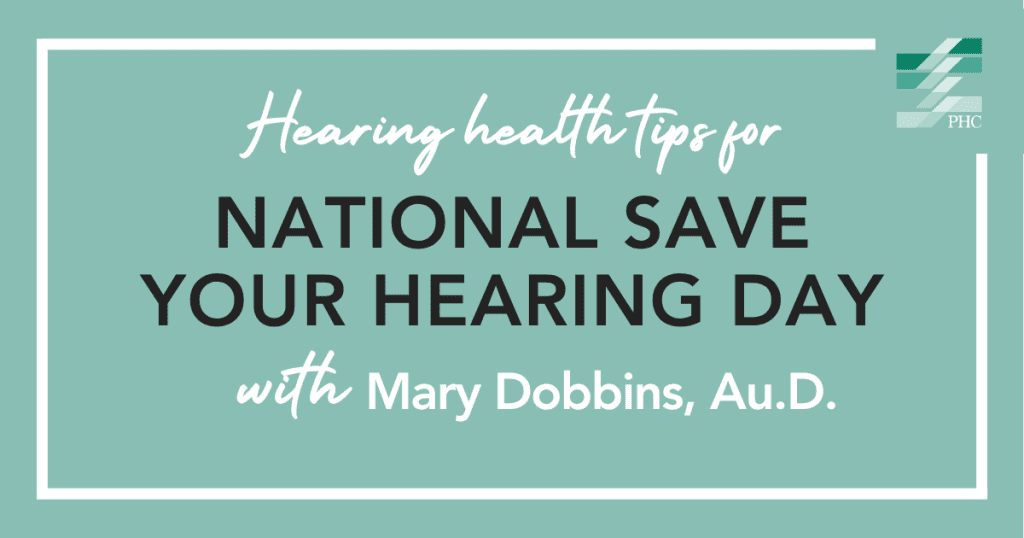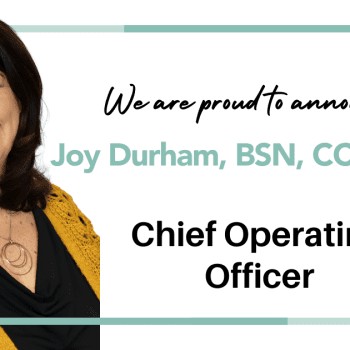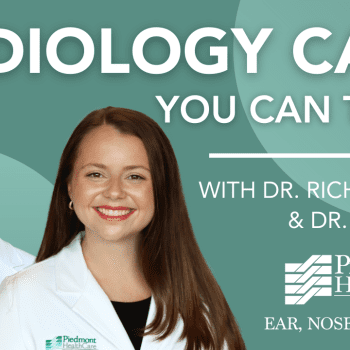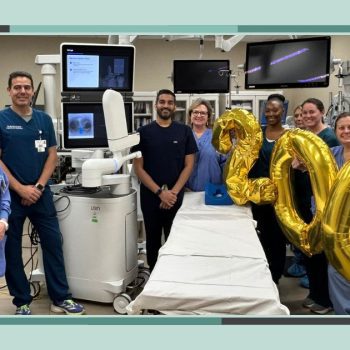With Audiologist, Mary Dobbins, Au.D.
May 31st marks National Save Your Hearing Day, a great reminder to take a moment and think about your long-term hearing health. We sat down with Mary Dobbins, Au.D., an audiologist with PHC Ear, Nose, & Throat, to discuss common causes of hearing loss, how to prevent it, and what signs shouldn’t be ignored.
What daily habits can damage your hearing over time?
Noise exposure is one of the leading causes of hearing loss, and it often happens gradually. Everyday activities like attending concerts, using loud farm equipment, working around machinery, shooting firearms, or even cranking up the volume on your headphones can all take a toll.
“Hearing protection is key,” says Dr. Dobbins. “Anything is better than nothing. Whether it’s foam earplugs or professional-grade over-ear hearing protection, using protection consistently can save your hearing over time.”
Easy ways to prevent hearing loss
Prevention starts with awareness. Here are a few easy steps to help safeguard your hearing:
- Limit your exposure to loud noise whenever possible.
- Use hearing protection in noisy environments, even at sporting events or concerts.
- Maintain overall health, including managing chronic conditions that can affect your hearing.
- A nutrient-rich diet supports auditory health; nutrients like folic acid, omega-3 fatty acids, and vitamins A, C, and E, found in leafy greens, nuts, and fish, have all been linked to better ear health.
“People don’t always associate diet or general health with hearing, but there’s definitely a connection,” Dr. Dobbins explains.
Common myths about hearing loss
One of the biggest misconceptions is that hearing loss only happens to older adults. In reality, it can affect people of all ages, including young children.
What causes hearing loss in children?
One of the most common causes of hearing loss in kids is untreated or recurring middle ear infections. “Early detection is crucial,” says Dr. Dobbins. “Testing a child’s hearing when they’re healthy can also establish a useful benchmark for the future.”
In fact, the World Health Organization estimates that 60% of childhood hearing loss is preventable. Key preventative measures include:
- Staying current with childhood immunizations
- Promoting maternal health and hygiene
- Ensuring quality neonatal care
- Avoid putting foreign objects in the ear
When should someone come in for a hearing test?
If you notice a sudden change in your hearing, don’t wait! This is what we call an ear emergency.
“Even if you think it’s just wax or fluid, get it checked right away,” Dr. Dobbins urges. “Delaying care can lead to permanent hearing damage in some cases.”
Remember: “I can hear, but I can’t understand” is a common early symptom, especially if you’re struggling to hear higher pitches or understand conversations in noisy environments.
Beyond the immediate effects on communication, untreated hearing loss has been linked to a higher risk of cognitive decline, including dementia and Alzheimer’s disease. Studies show that when the brain has to work harder to process sounds, it may impact memory and thinking skills over time.
In addition, untreated hearing loss can lead to increased social isolation, anxiety, and depression, all of which are also associated with poorer cognitive outcomes. Taking steps to manage hearing loss early not only protects your ears but may also support long-term brain health and emotional well-being.
Your hearing matters.
On National Save Your Hearing Day, take a moment to protect one of your most important senses. Whether it’s upgrading your ear protection, booking a baseline hearing test, or simply turning the volume down, small steps can make a big difference.
Have questions or need a hearing evaluation? Contact the audiology team at PHC Ear, Nose, & Throat by calling 704-873-5224 , we’re here to help you hear your best.








